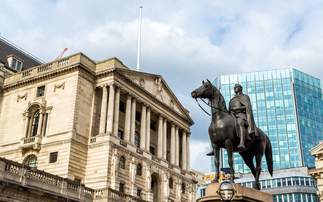Market participants have reacted with a healthy dose of scepticism to the European Central Bank's long-awaited quantitative easing programme, saying the move may not be enough to revive the struggling eurozone economy.
On Thursday, ECB president Mario Draghi announced plans to buy €60bn of assets per month from this March, a programme that will last until September 2016 or until inflation - currently at -0.2% - moves back towards the central bank’s 2% target. The scope of the monetary easing is larger than had been anticipated, and the likes of HSBC’s currency strategists suggested the programme is “essentially open-ended” despite the theoretical 2016 end date. In response, the euro fell 1.2% to a fresh 11-year low against the dollar of $1.142, and the drop continued on Friday: the euro hit a 12-y...
To continue reading this article...
Join Investment Week for free
- Unlimited access to real-time news, analysis and opinion from the investment industry, including the Sustainable Hub covering fund news from the ESG space
- Get ahead of regulatory and technological changes affecting fund management
- Important and breaking news stories selected by the editors delivered straight to your inbox each day
- Weekly members-only newsletter with exclusive opinion pieces from leading industry experts
- Be the first to hear about our extensive events schedule and awards programmes









